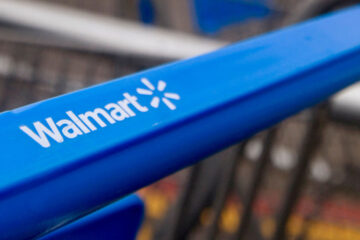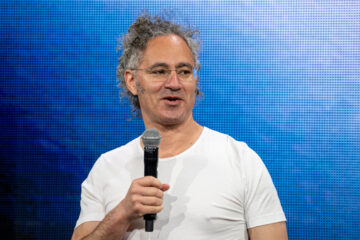When it comes to rocket launches there’s ‘”No Time Toulouse.”
Before we go any farther, let the record reflect that we had absolutely nothing to do with that excruciating pun, apparently inspired by the famous French artist Henri de Toulouse-Lautrec.
Related: Analyst reboots Rocket Lab stock price target after earnings
We’ve had our share of clunkers, but that particular play on words was brought to you by Rocket Lab USA (RKLB) .
On June 20 the Long Beach, Calif., space-systems company successfully launched its 50th Electron mission from Mahia, New Zealand, as it deployed satellites for the French internet-of-things company Kinéis.
The mission was the first of five dedicated Electron launches for Kinéis, which is backed by private and public investors including the French government’s space agency CNES and CLS, an international space-based solutions provider, to improve global IoT connectivity.
Rocket Lab USA founder and CEO Peter Beck
Rocket Lab marks 50 launches
Electron — Rocket Lab’s partly reusable orbital launch vehicle — reached the milestone of 50 launches faster than any commercially developed rocket in history, the company said in a statement.
“Today’s precise, tailored mission for Kinéis is yet another demonstration of the value Electron continues to provide to the small-sat community,” Rocket Lab Founder and Chief Executive Peter Beck said.
Related: Analysts reboot Nvidia stock forecasts after shares dip
The commercial satellite industry is really taking off. (Okay, that one’s on us.)
Last year, the sector “continued to grow at an unprecedented rate,” according to the Satellite Industry Association, launching a record number of commercial satellites into orbit.
A total of 2,781 commercial satellites were deployed during 2023, up 20% from the previous year.
By the end of the year, a total of 9,691 active satellites circled the Earth, an increase of more than four times over the past five years.
U.S. firms built 85% of the commercial satellites launched during the year, the association said.
Tesla (TSLA) CEO Elon Musk’s SpaceX launched 96 successful missions in 2023 with its Falcon rocket series, topping its annual record of 61 orbital launches set in the previous year.
SpaceX landed its 250th orbital rocket booster and launched and landed a single rocket 19 times.
Earlier this month, Rocket Lab USA said it had signed the largest Electron launch agreement in its history: a 10-launch deal with Japanese Earth observation company Synspective.
The agreement was announced in Tokyo at an event attended by Beck, Synspective Founder and CEO Motoyuki Arai and New Zealand Prime Minister Christopher Luxon, who was in Japan with a business delegation.
Rocket Lab has been launching for Synspective since 2020 when the company deployed the first satellite in Synspective’s synthetic aperture radar constellation. That’s designed to deliver imagery that can detect millimeter-level changes to the Earth’s surface from space.
Since that first mission, Rocket Lab said it had been the sole launch provider for Synspective’s StriX constellation to date, successfully deploying four StriX satellites across four dedicated Electron launches.
Rocket Lab CEO cites ‘gremlins’ in rocket delay
Meanwhile, Rocket Lab USA said on June 11 that it had signed a nonbinding preliminary memorandum of terms with the U.S. Department of Commerce under which the company would receive as much as $23.9 million in direct funding under the Chips and Science Act.
The proposed investment would enable Rocket Lab to increase its production of compound semiconductors for spacecraft and satellites, as it expands and modernizes its facility in Albuquerque, N.M.
It would also create more than 100 direct manufacturing jobs, the company said.
Along with the progress and impressive technology, Rocket Lab has been having some trouble with gremlins.
More Tech Stocks:
Nvidia has $4 trillion value in sight as AI seen powering chip salesAnalyst updates Oracle stock price target after earningsAnalyst revamps Palantir stock price target as software firm widens scope
The company reported first-quarter results in May, and during the earnings call Beck told analysts that the launch of Neutron, the company’s medium lift vehicle, originally scheduled for year-end, would happen no earlier than mid-2025.
Rocket Lab Chief Financial Officer Adam Spice said last year that the company was positioning Neutron to compete directly with Space X’s Falcon 9, CNBC reported.
“Getting Neutron to the pad this year was an ambitious green-light schedule that we had a path to closing if every single aspect went exactly according to plan,” he said. “But as we’ve always said, this is a rocket-development program and this is always filled with gremlins, some in (our) control and some not.”
Beck said Neutron was still coming to market faster “than just about any other rocket program that I know.”
“We believe Neutron will be a category-defining launch vehicle serving critical market needs, and we’re excited to move into the final phase of development,” he said.
Investment firms assess Rocket Lab
Analysts have been keeping an eye on the company, which Beck founded in New Zealand in 2006.
On June 18, Roth MKM said it was affirming a buy rating and $7 price target on Rocket Lab following news of the Synspective agreement, which the investment firm said further strengthened its long-term pipeline visibility.
Roth MKM said in a research note that it was encouraged that a longstanding Rocket Lab customer that has conducted multiple launches since 2020 was comfortable committing to a new 10-launch deal.
On June 25, BTIG initiated coverage of Rocket Lab with a neutral rating and no price target.
The investment firm’s analyst says Rocket Lab remains the preeminent small-launch provider on the market, having launched at a higher cadence than any other company.
However, the firm sees “significant risk” before Rocket Lab can begin to reap the financial benefits of its “guarded” market share.
The demands of the Neutron medium lift vehicle development have posed a hurdle the company must clear before it achieves profitability and positive free cash flow, BTIG said.
Related: Veteran fund manager picks favorite stocks for 2024


